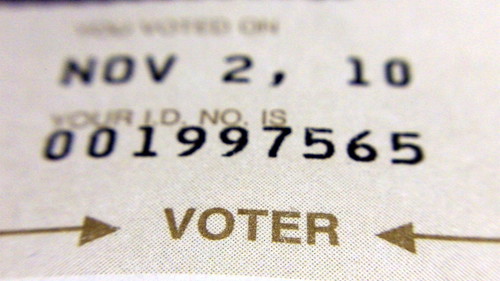December 10th, 2010 by AnnMacDonald in Better Health Network, Health Tips, News, Research
1 Comment »

Only one-third of people with major depression achieve remission after trying one antidepressant. When the first medication doesn’t adequately relieve symptoms, next step options include taking a new drug along with the first, or switching to another drug. With time and persistence, nearly seven in 10 adults with major depression eventually find a treatment that works.
Of course, that also means that the remaining one-third of people with major depression cannot achieve remission even after trying multiple options. Experts are hunting for ways to understand the cause of persistent symptoms. In recent years, one theory in particular has gained traction: that many people with hard-to-treat major depression actually suffer from bipolar disorder. However, a paper published online this week in the Archives of General Psychiatry suggests otherwise — and the findings provide new insights into the nature of treatment-resistant depression. Read more »
*This blog post was originally published at Harvard Health Blog*
December 1st, 2010 by GruntDoc in Better Health Network, Health Policy, Humor, News
No Comments »

Via an article in The New York Times entitled “Narcissism No Longer a Psychiatric Disorder”:
Narcissistic personality disorder, characterized by an inflated sense of self-importance and the need for constant attention, has been eliminated from the upcoming manual of mental disorders, which psychiatrists use to diagnose mental illness.
As Charles Zanor reports in today’s Science Times, the fifth edition of the Diagnostic and Statistical Manual of Mental Disorders — due out in 2013 and known as D.S.M.-5 — has eliminated five of the 10 personality disorders that are listed in the current edition. The best known of these is narcissistic personality disorder.
So, blogging is normal then? Kinda takes the fun out of it…
*This blog post was originally published at GruntDoc*
November 14th, 2010 by DrCharles in Better Health Network, Health Policy, News, Opinion
3 Comments »

 When the Republicans took back the House of Representatives [recently], John Boehner, the presumptive new Speaker and current Senator from Ohio, unleashed a “sob heard round the world.” As The New York Times quotes:
When the Republicans took back the House of Representatives [recently], John Boehner, the presumptive new Speaker and current Senator from Ohio, unleashed a “sob heard round the world.” As The New York Times quotes:
“I’ve spent my whole life chasing the American dream,” (Boehner) said, beginning to cry. He swallowed and tried again. But describing all the bad jobs he had once led to near sobbing when he got to the line, “I poured my heart and soul into running a small business.”
Boehner has cried in public many other times, the recent election night being only the largest stage to date. The tears also flow at his annual golf tournament, or while watching a child pledge allegiance to the flag, listening to a Republican colleague speak about his Vietnam War experiences, the unveiling of a statue of Ronald Reagan, while accepting various awards, during a rendition of “America the Beautiful,” etc. Could these tears be signs of major depression? Should melancholy be a disqualification for leadership? Were Clinton’s tears any better? Read more »
*This blog post was originally published at The Examining Room of Dr. Charles*
November 3rd, 2010 by Steven Roy Daviss, M.D. in Better Health Network, Health Policy, Opinion
No Comments »


 Back in the 1970s, Kansas passed a law that could prevent people with mental illness from voting. The law was never used, but advocates were successful in getting an amendment passed that revoked that law.
Back in the 1970s, Kansas passed a law that could prevent people with mental illness from voting. The law was never used, but advocates were successful in getting an amendment passed that revoked that law.
This law was passed at a time when stigma against mental illness was much higher than now. I’m guessing it was presumed that folks with a mental illness could not reason enough to exercise an informed vote, which is not true, of course. If 1outta5 have a psychiatric illness, including anxiety, depression, and substance abuse, then there could have been a huge swath of disenfranchised voters.
And there already exists, to a degree, a basic cognitive test for voting: Navigating the whole ballot process. In Maryland, ours was electronic and no harder to use than an iPad, but I could still imaging some with severe dementia unable to navigate the system. But there should never be a cognitive bar one must pass to vote. The challenge would be where to draw the line.
*This blog post was originally published at Shrink Rap*
September 24th, 2010 by Dinah Miller, M.D. in Better Health Network, News, Opinion, Research
No Comments »


 In psychiatry, we’ve had a hard time drawing precise links between brain pathology and psychiatric disorders. We can do it for groups of people: “Disease X” is associated with changes in brain structure of “Brain Area Y” or metabolic changes in “Brain Area Z.” But it’s groups, not individuals, and it’s an association, not a cause-and-effect, or a definite. We still can’t use this information for diagnosis, and there are still patients with any given psychiatric diagnoses who will have brains where “Area Y” is the same size as those without the disorder. We’re learning.
In psychiatry, we’ve had a hard time drawing precise links between brain pathology and psychiatric disorders. We can do it for groups of people: “Disease X” is associated with changes in brain structure of “Brain Area Y” or metabolic changes in “Brain Area Z.” But it’s groups, not individuals, and it’s an association, not a cause-and-effect, or a definite. We still can’t use this information for diagnosis, and there are still patients with any given psychiatric diagnoses who will have brains where “Area Y” is the same size as those without the disorder. We’re learning.
From what I read in this New York Times article, Owen Thomas was a bright, talented young man with no history of psychiatric disorder and no history of known concussion. In April, he committed suicide — a tragedy beyond words.
Sometime people commit suicide and everyone is left to wonder: There was no depression, no obvious precipitant, no note left behind, and every one is left to wonder why. The guilt toll on the survivors is enormous, as is the grief for their families and communities. In this case, according to the Philadelphia Inquirer, the young man was apparently struggling with the stress of difficult school work and concerns about his team and employment.
Owen’s family donated his brain to Boston University’s Center for the Study of Traumatic Encephalopathy. They discovered that Owen’s brain showed damage similar to that seen in older NFL players — he had a condition called chronic traumatic encephalopathy. Read more »
*This blog post was originally published at Shrink Rap*









 In psychiatry, we’ve had a hard time drawing precise links between brain pathology and psychiatric disorders. We can do it for groups of people: “Disease X” is associated with changes in brain structure of “Brain Area Y” or metabolic changes in “Brain Area Z.” But it’s groups, not individuals, and it’s an association, not a cause-and-effect, or a definite. We still can’t use this information for diagnosis, and there are still patients with any given psychiatric diagnoses who will have brains where “Area Y” is the same size as those without the disorder. We’re learning.
In psychiatry, we’ve had a hard time drawing precise links between brain pathology and psychiatric disorders. We can do it for groups of people: “Disease X” is associated with changes in brain structure of “Brain Area Y” or metabolic changes in “Brain Area Z.” But it’s groups, not individuals, and it’s an association, not a cause-and-effect, or a definite. We still can’t use this information for diagnosis, and there are still patients with any given psychiatric diagnoses who will have brains where “Area Y” is the same size as those without the disorder. We’re learning.







